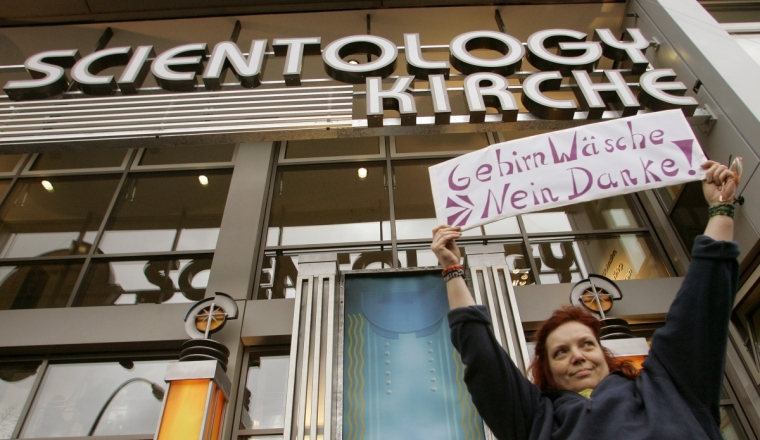Russia authorities raid more than a dozen Scientology sites

MOSCOW (Christian Examiner) – Russian police have raided more than a dozen sites associated with the Church of Scientology, an organization regarded by both the government and the Russian Orthodox Church as a cult.
The FSB (federal security service) launched the raids to conduct "simultaneous searches" at 14 sites in Moscow and St. Petersburg, both hubs of the organization's effort in the country. Police claimed they were looking into the church's financial practices, which allegedly include fraud and embezzlement.
"Objects and documents were found and seized that proved the investigators' version [of events] about the marketing functions for goods and services of the Church of Scientology of Saint Petersburg in violation of the law," a police statement carried by the RIA Novosti news agency said. Police also took hard drives, notebooks and other materials from the sites.
At least 10 people were arrested in St. Petersburg alone. Police hope the arrests will dampen support for the church, which was dealt a severe blow in November 2015 when a Russian court said the group could not operate in Moscow because it was only registered as a U.S. organization.
"Parishioners are working for the good of the country, actively involved in an anti-drug awareness campaign, through which hundreds of thousands of young people and adolescents refused to take drugs. Hundreds of young people, volunteers of the church, are engaged in cleaning of streets, parks and squares. This is only a small part of what we do together for the prosperity of our country. Why the hands of law enforcement are trying to stop this useful activity for society remains a mystery.
Natalia Alekseev, director of public relations for the church, told a Russian-language news service that the group was "outraged" by the raids and that "worshippers and servants of the Church of Scientology did not understand what had happened."
"Parishioners are working for the good of the country, actively involved in an anti-drug awareness campaign, through which hundreds of thousands of young people and adolescents refused to take drugs," Alekseev said in the statement.
"Hundreds of young people, volunteers of the church, are engaged in the cleaning of streets, parks and squares. This is only a small part of what we do together for the prosperity of our country. Why the hands of law enforcement are trying to stop this useful activity for society remains a mystery."
Scientology has gained adherents in the metropolitan areas of Russia, but is increasingly unpopular among traditionalists in the government.
That is why this is not the first time the church's offices have been raided. The first raids came in 2011 when police literally had to saw doors in half to enter the inner rooms of Scientology centers.
They were also searched in January 2015 in an investigation on the illegal sale of land and, in August, police raided another venue and found hidden cameras and microphones. The "church" was apparently listening to what its members said when leaders were not present.
The most recent raids were part of a continued investigation into alleged money laundering.
According to authorities, Ekaterina Zaborskikh stole 130 million rubles ($2 million US) from 2012-2014 when she funneled money from her construction company to the church. She was selling high-end apartments – "affordable castles" – to people, taking their money but never building the living spaces.
Scientology is based on the science fiction writing of L. Ron Hubbard, whose book Dianetics: The Modern Science of Mental Health was published in 1950. The church was founded in 1954 and was led by Hubbard until his death. It is now led by David Miscavige, who critics claim is a cult leader who demands absolute devotion and is abusive of church members. Scientology is also publicly represented by actor Tom Cruise.
Scientology has established centers throughout Europe and the European Court of Human Rights has said Russia is violating the rights of its adherents by refusing to register its centers as religious organizations.
Russia's Orthodox Church, the faith home of most Russian churchgoers, considers Scientology a cult. In 1994, the Council of Russian Orthodox Bishops called the science-fiction based religion a "pseudo-religion" from the West which was meant to decieve the people.